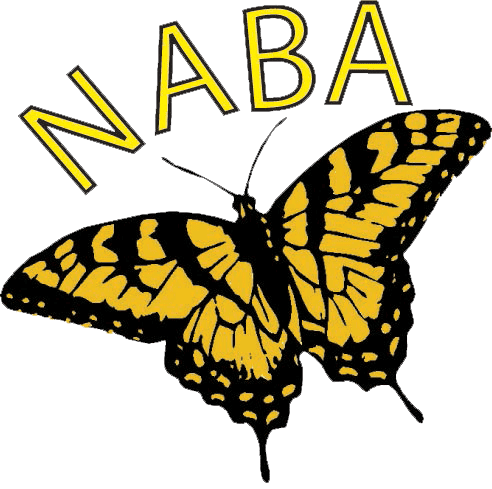![]()

Monarchs are probably the most well known butterflies in North America. Sadly, the number of Monarchs seen in our gardens has been decreasing over the last decade. One of the factors that is causing this decrease is the loss of the Monarch caterpillars’ food plant, namely, milkweeds. Each person can help Monarchs by planting milkweeds.
Choose Regionally Native Milkweeds ![]()
When possible, choose milkweeds that are native to your region. By selecting milkweeds that are found naturally in your region, you will increase the chance that your milkweed will establish and grow well. Monarch Joint Venture has created an information sheet that helps with milkweed selection:
Plant Milkweeds for Monarchs.
Once you have chosen the milkweeds for your garden, blending them into a garden design should not be hard. NABA member Lenora Larson has written about gardening with milkweeds for Monarchs in Butterfly Gardener magazine.
Tropical Milkweed is not native to the United States or Canada yet it is commonly grown in gardens for Monarchs. Recently, some Monarch researchers have suggested that the use of Tropical Milkweed in the southern United States may be disrupting the Monarch migration as well as increasing the likelihood of Monarch parasites. An article published in American Butterflies brings to light some of the issues surrounding the use of Tropical Milkweed and suggests that much more is needed to be known. Click on the image below to read the entire article:
Milkweeds Reviewed by NABA Butterfly Gardeners
![]()

Experienced butterfly gardeners from North American Butterfly Association have evaluated the following milkweeds for use in gardens:
Purple Milkweed (Asclepias purpurascens)
Tropical Milkweed (Asclepias curassavica)
Swamp Milkweed (Asclepias incarnata)
Butterfly Milkweed (Asclepias tuberosa)
Green Antelopehorn Milkweed (Asclepias viridis)
Learn More About Monarchs and Milkweeds
![]()
Extensive online resources for learning about Monarchs can be found on Monarch Joint Venture’s list of resources.
Programs from the University of Minnesota’s Monarch Lab offer a wealth of information about Monarchs and milkweeds. Topics covered include Monarch biology, raising Monarchs, and lesson plans. Education & Gardening is one of Monarch Lab’s sections that will be of particular interest to teachers.

